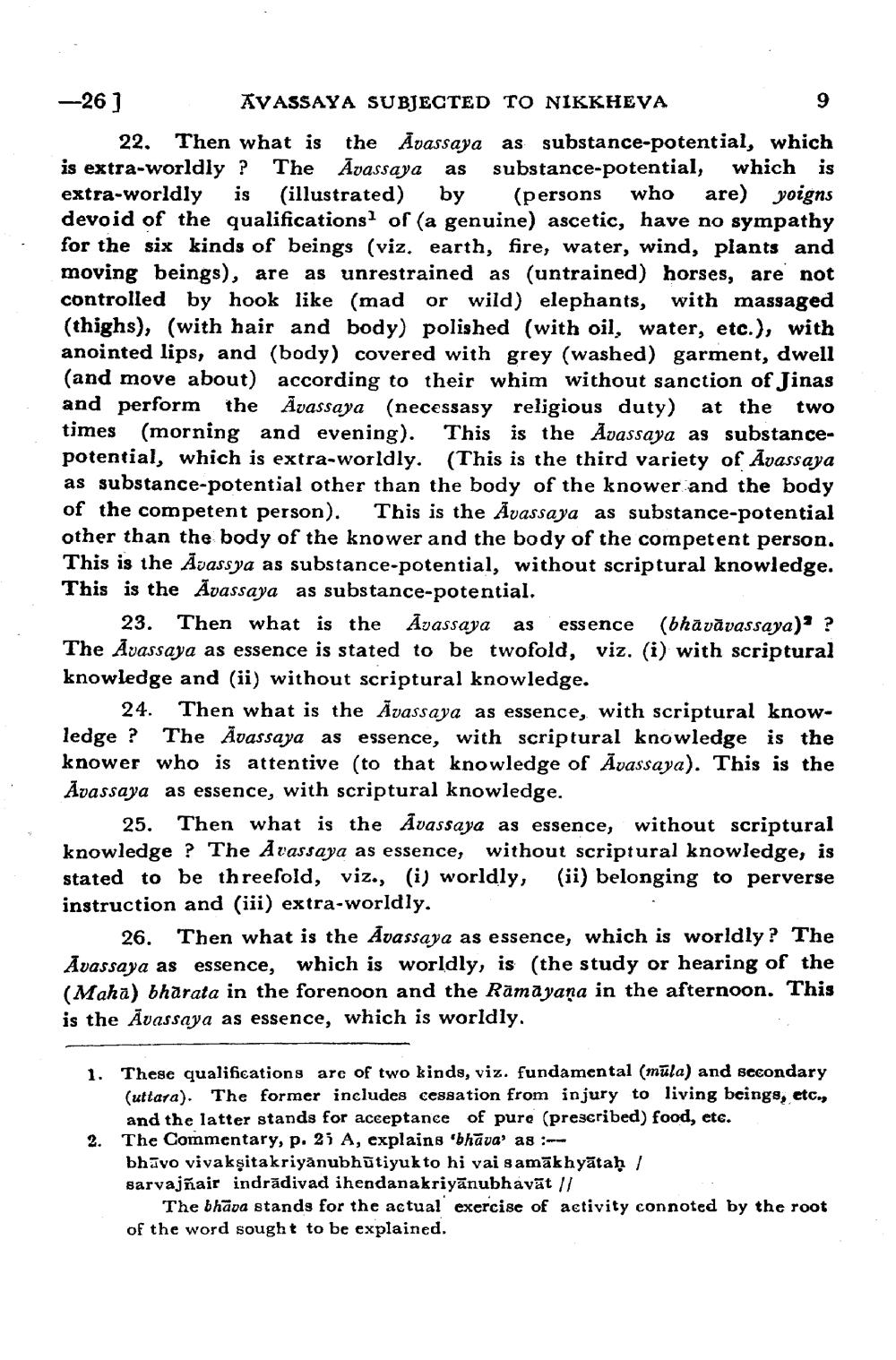________________
--26]
9
AVASSAYA SUBJECTED TO NIKKHEVA
22. Then what is the Avassaya as substance-potential, which is extra-worldly? The AĀvassaya as substance-potential, which is extra-worldly is (illustrated) by (persons who are) yoigns devoid of the qualifications1 of (a genuine) ascetic, have no sympathy for the six kinds of beings (viz. earth, fire, water, wind, plants and moving beings), are as unrestrained as (untrained) horses, are not controlled by hook like (mad or wild) elephants, with massaged (thighs), (with hair and body) polished (with oil, water, etc.), with anointed lips, and (body) covered with grey (washed) garment, dwell (and move about) according to their whim without sanction of Jinas and perform the Avassaya (necessasy religious duty) at the times (morning and evening). This is the Avassaya as substancepotential, which is extra-worldly. (This is the third variety of Avassaya as substance-potential other than the body of the knower and the body of the competent person). This is the Avassaya as substance-potential other than the body of the knower and the body of the competent person. This is the Avassya as substance-potential, without scriptural knowledge. This is the Avassaya as substance-potential.
two
23. Then what is the Avassaya as essence (bhavavassaya) ? The Avassaya as essence is stated to be twofold, viz. (i) with scriptural knowledge and (ii) without scriptural knowledge.
24. Then what is the Avassaya as essence, with scriptural knowledge ? The Avassaya as essence, with scriptural knowledge is the knower who is attentive (to that knowledge of Avassaya). This is the Avassaya as essence, with scriptural knowledge.
25. Then what is the Avassaya as essence, without scriptural knowledge? The Avassaya as essence, without scriptural knowledge, is stated to be threefold, viz., (i) worldly, (ii) belonging to perverse instruction and (iii) extra-worldly.
26. Then what is the Avassaya as essence, which is worldly? The Avassaya as essence, which is worldly, is (the study or hearing of the (Maha) bharata in the forenoon and the Ramayana in the afternoon. This is the Avassaya as essence, which is worldly.
1. These qualifications are of two kinds, viz. fundamental (mula) and secondary (uttara). The former includes cessation from injury to living beings, etc., and the latter stands for acceptance of pure (prescribed) food, etc.
2. The Commentary, p. 21 A, explains 'bhava' as :---
bhāvo vivakṣitakriyānubhutiyuk to hi vai samākhyātaḥ / sarvajñair indrādivad ihendanakriyānubhavāt //
The bhava stands for the actual exercise of activity connoted by the root of the word sought to be explained.




